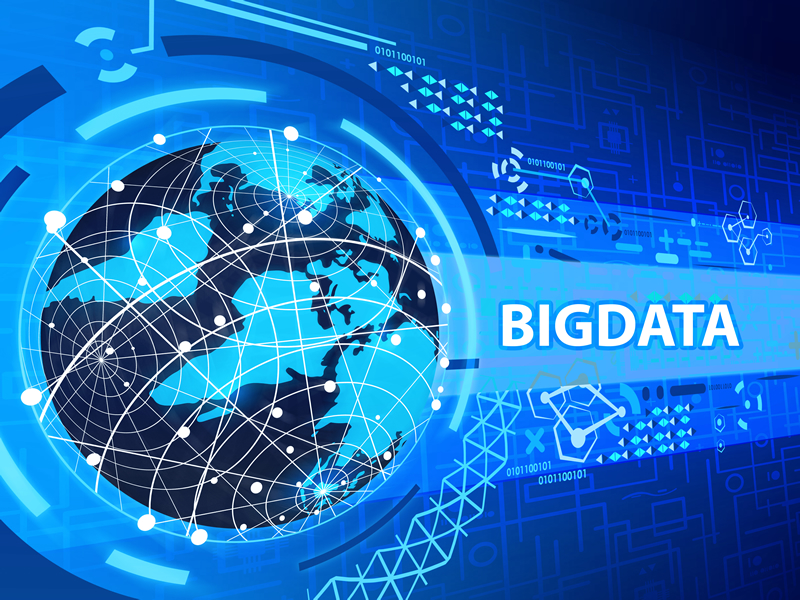

The amount of data produced on a daily basis day is staggering - 2.5 quintillion bytes of data is created everyday - and that is only going to accelerate further with the growth of the internet.
Over the last two years alone 90 percent of the data in the world was generated.
Big data is a term used to describe the massive growth and availability of structured and unstructured data. As well as refering to the volume of data, it also refers to the technology (tools and processes) that an organisation requires to handle these data volumes and storage facilities. Big Data spans three dimensions:
The importance of big data isn't to do with how much data you have, but what you do with it. Data from any source can be analysed to find answers that can enable cost or time savings, product development or refinements and smarter decision making. When big data is combined with analytics, business-related tasks become easier. For example, detecting bad reviews on social media sites.
Today, big data is used practically every industry:
These are just a few of the various ways big data can help businesses in both the public and the private sector.
Big data is usually mined in real-time. This is crucial because metrics such as consumer loyalty are then up-to-date so you can now test your theories in real time.

Big data can give you insights based on analysis of your market and its consumers.
Big data affects every business, big and small, and changes how we do business. As data collection, analysis, and interpretation becomes more readily accessible, they will impact on every business in several important ways - regardless of the field you operate in or the size of your business:
Big data can give you a competitive advantage and can be used in many ways for your business:
Understand your customers better. Big data can help you understand your customers better and drive product improvements. Big data will show you what your customers are really doing. Big data can be used to know who is buying your products and what they are saying about them, which can help you to determine what you should target moving forward. Customers experiences and behaviour can be captures from laptops, desktops, smartphones, tablets and more. There is no limit to how you can use big data to know your customers better.
Create better marketing campaigns. Big data can be used to make better marketing decisions. If you track performance data, this can be used to help guide your company's content strategy. It can also be used to predict what groups of people respond to the different marketing strategies. Big data makes it possible for you to know exactly who's buying from your business - their ages, ethnicities, income brackets, locations, etc. This information can be used to understand what impacts their buying decisions and allows you to send your target audience the right message that will get them to buy from you.
Understand social media. Big data can be used to identify mentions of your business on social media sites and analyse data to find valuable information that you can use to make smarter business decisions. Take advantage of every social media platform that makes sense for your business. By knowing your customers better and understanding how they interact with different social media platforms, you can find more effective ways to reach them and sell your product.
Capturing and innovating through big data can be used to outperform your competition. This is why it is being used in almost every sector today. Companies are using it to discover ways in which their services and products can be improved, how to improve their relationships with suppliers and buyers and to gain insights into their consumers.